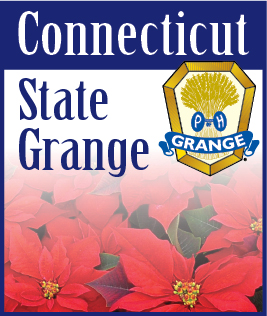| JUNE 1, 2010 -- When Colonists first came to the Valley, they brought more than an attitude of modern manifest destiny.
Hopes fueled horses and tractors in 1935 as those Colonists carved an agricultural community out of the Alaska wilderness, and waiting to help was Northland Pioneer Grange. Started in 1934 and chartered in 1935, the Grange helped shaped the Valley's future in ways that still have major impacts on local residents today.
"It was kind of the only game in town," said Sig Restad, president of Northland Pioneer Grange. "We're dedicated to agriculture and the rural lifestyle, and for a long time (the Grange) was it for community service."
Today, the Grange has a low profile. It's 35 to 40 members focus on "keeping the common sense" in state and local regulations involving agriculture, Restad said. It also works with youth organizations like Future Farmers of America, 4-H and Ag in the Classroom.
Once upon a time, however, Grange was a very influential mover and shaker for the Valley and state, said Restad, who is also a former state Director of Agriculture.
In addition to the Grange Hall being a hub for community events, Northland Pioneer Grange was instrumental in getting rural distribution of mail and establishing the Matanuska Telephone Association and Matanuska Electric Association cooperatives. The state's Agriculture Revolving Loan Fund is also another lasting initiative supported by Grange, Restad said.
As if that weren't enough, the Alaska State Fair as we know it today has its roots with the Grange, which started its own fair. That became the Matanuska Fair, which then grew into the Alaska State Fair.
"It's all a rural community service kind of thing," Restad said, adding that maintaining a rural lifestyle is more difficult in this era of fast growth. "That's the really challenging question. I think our youth is a primary (focus) now. Also, we review ordinances and legislation and make sure they have some kind of common sense. We want to keep bringing agriculture and rural activities to the forefront as much as possible."
It was that mission that brought Grange members and FFA youth together earlier this month for a community service project at Babb Arboretum in Palmer.
Victoria Naegele is a Grange member and heads up the Valley's Ag in the Classroom initiative, which helped with clean-up at the arboretum. Although her agricultural background introduced her to Grange before she first came to the Valley more than 15 years ago, she didn't know much about the local group.
"It's really, really small, but it was a big deal back in the Colony times," she said. "They're very service-oriented. At every meeting they ask if there are any needs in the community."
New blood
In its heyday, Northland Pioneer Grange had more than 200 members, said Brad Sworts, treasurer for the group and vice president of the state Grange. Today those numbers have shrunk to a few dozen of mostly aging members. Finding younger members is crucial for the group to continue its long history of service and impact on the Valley, he said.
"That's very important," he said. FFA and 4-H "are where our future members often come from."
That the Valley has been the state's fastest growing area for well over a decade and has transitioned to a more urban lifestyle has been a challenge for Grange, he said.
"Growth is happening here in the Valley and we're transitioning along with that growth to help promote groups like Master Gardeners and FFA," he said. "Now, we also just promote gardening as well. Of course, for many that's now being done in smaller plots."
|
